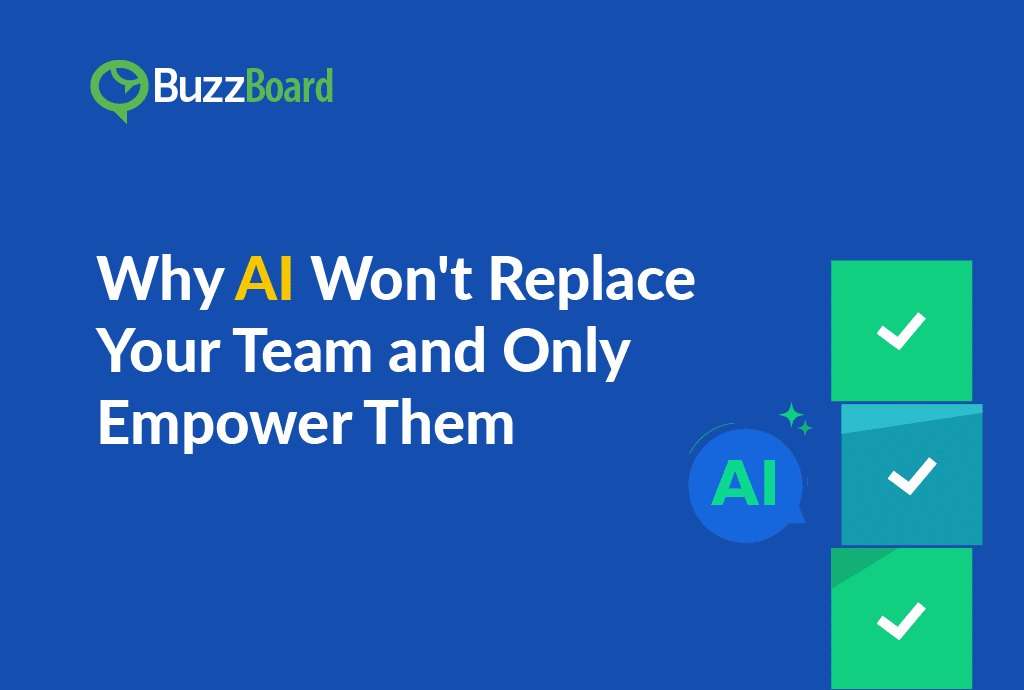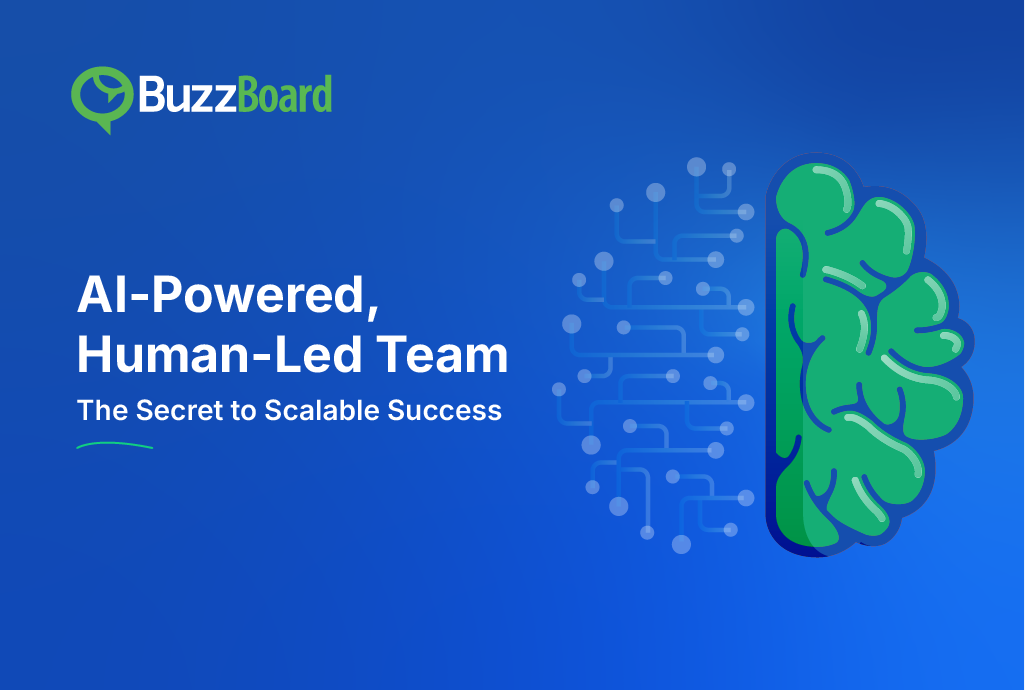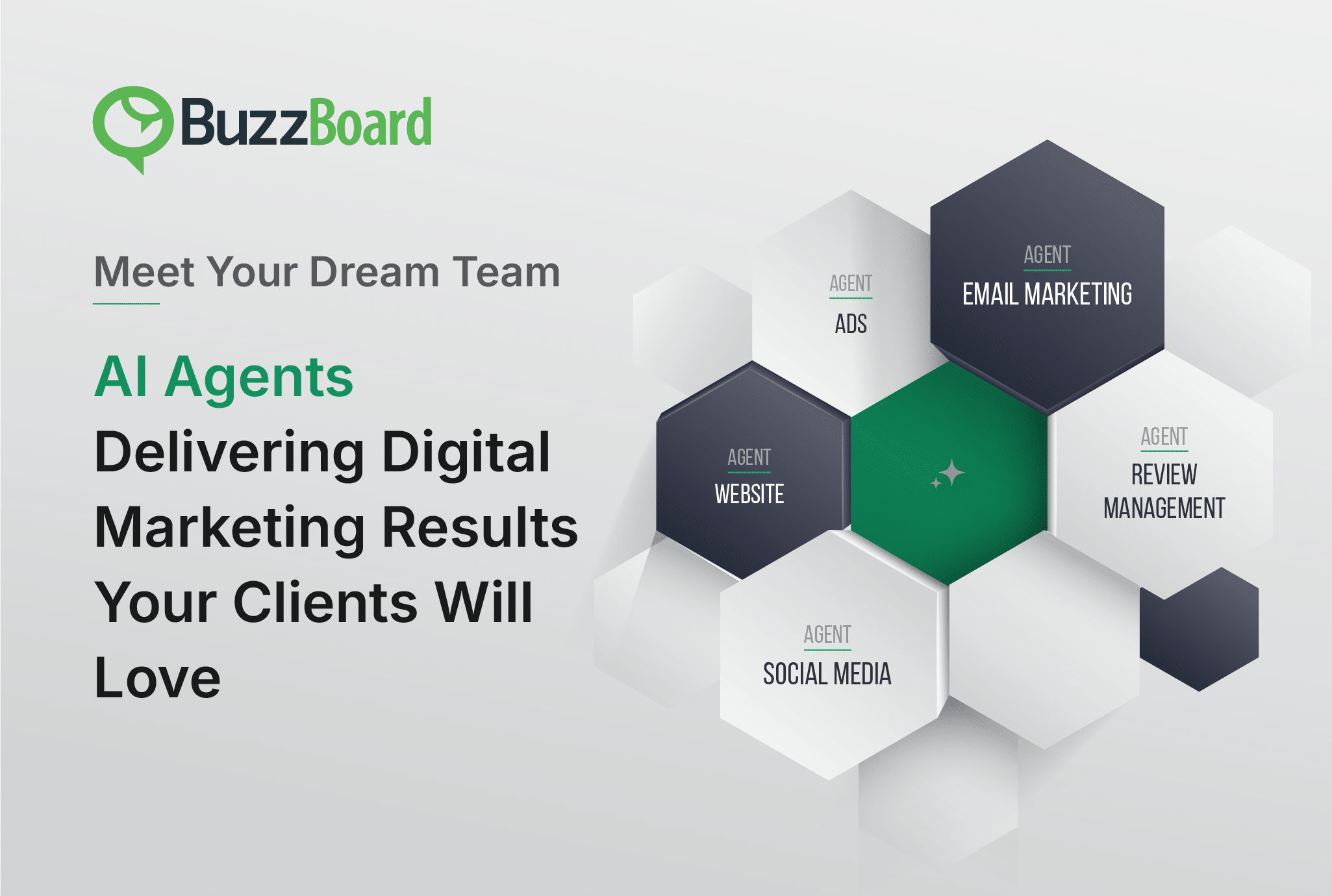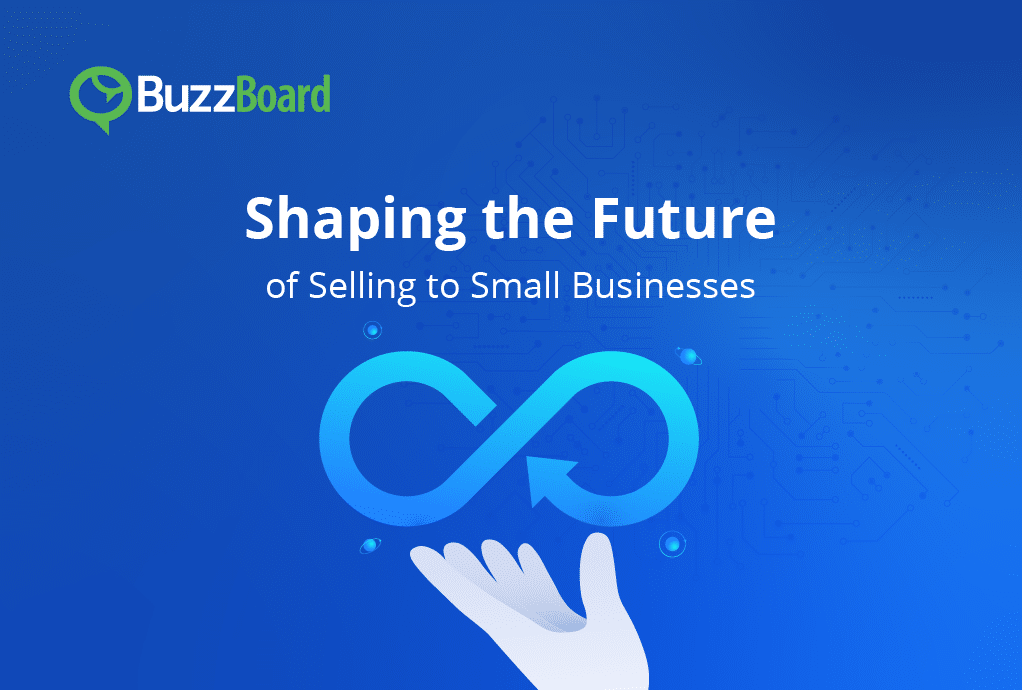Artificial intelligence (AI) coming to the forefront has stirred both intrigue and worry. There’s a persistent fear that AI might replace the human workforce, including sales teams, rendering them redundant. However, the truth is far more promising and reassuring: AI isn’t here to take your team’s place; it’s here to amplify their capabilities and elevate their potential.
AI, with its ability to process vast amounts of data and perform complex tasks, is a powerful sales tool, no doubt. Yet, its true strength lies in its partnership with human expertise. Picture this: your sales team harnesses AI-driven analytics to predict market trends, enabling them to tailor products and services to customer needs before they arise. They collaborate with AI-powered tools to streamline workflows, allowing them to devote more time to fostering client relationships and nurturing creative solutions.
The future isn’t AI versus your team; it’s AI empowering your team to redefine what’s achievable. And this is not just all talk! Several prominent experts second this school of thought with enough facts and improved perceptions to look at AI’s position and potential, which is to better equip your people, your sphere of business.
Mathematics Makes a Big Difference in Keeping Humans Ahead of AI
“We would have to progress a lot deeper in our understanding of creative thoughts, ethics, and consciousness before we would even have the building blocks to think of how to create an AI that would be able to wipe out humanity.”
—Theo Omtzigt, chief technology officer, Lemurian Labs
Advanced AI systems that can generate new content like text, images, and videos have become very popular recently. These systems, known as generative models, use complex mathematical techniques to identify patterns in massive datasets. This allows them to produce novel outputs based on the prompts they receive from users. Now, while these models are getting more fine-tuned at recognizing patterns, human intelligence involves much more than that. According to Omtzigt, the math powering even the most advanced GenAIs today is still fairly simple compared to the complexity of the human brain. Definitely, more work is needed for these systems to reach deeper levels of understanding on par with human cognition.
Further answers lie in the technique. Well, humans and AI have their own, individual ways of learning!
James Brusseau, who teaches AI ethics at the University of Trento, Italy, has a beautiful example to explain this piece of information. When exposed to numerous images depicting rain, an artificial intelligence system may start to recognize a consistent association between rain and the presence of clouds. This is because across the rain images, clouds can always be observed in the scene. However, a human learner develops a deeper understanding that clouds are actually the cause of rain.
This is because what Justin Lewis, VP of incubation at BP said, “Generative AI and machine learning techniques are very heavily based on correlation, as opposed to causation”.
AI’s Limitations in Emotional Intelligence Gives Humans the Upper Hand
RIt’s this very absence of emotional understanding that solidifies the role of AI as an enabler rather than a usurper. While AI has remarkable analytical capabilities to its credit, its deficiency in comprehending and responding to human emotions is a critical factor ensuring that it won’t replace your teams… at least, not anytime soon.
Consider a scenario where AI processes information devoid of emotional context. While it can identify patterns and correlations within data, it lacks the depth to comprehend the emotions underlying that data. Human teams, on the contrary, bring a wealth of empathetic and insightful recognitions to the table, enabling them to connect on a level that transcends mere data analysis. Whether it’s supporting a colleague, negotiating with compassion, or understanding the unspoken needs of clients, these are the arenas where human teams excel due to their inherent emotional IQ.
People with AI Knowledge Will Have the Edge Over Others
“If you don’t use AI, you are going to struggle since most roles will use some form of AI in the way that they act.”
—Trevor Back, chief product officer, Speechmatics
AI is revolutionizing industries across the spectrum. Those who grasp its intricacies and wield its capabilities are poised to lead the charge in shaping the future. Whether it’s understanding machine learning algorithms, harnessing the potential of data analytics, or leveraging AI-driven solutions for complex problem-solving, individuals with AI expertise stand at the forefront of transformative change.
The significance of AI knowledge reverberates across diverse domains. In fields like healthcare, finance, marketing, and beyond, individuals armed with AI proficiency navigate uncharted territories, driving efficiency, unlocking insights, and redefining what’s achievable. Plus, companies worldwide seek individuals who comprehend AI’s capabilities and its implications. These individuals serve as catalysts, bridging the gap between cutting-edge technology and real-world applications. They possess the acumen to translate AI-driven insights into actionable strategies, giving businesses a competitive edge in an increasingly data-driven world.
Bottom line, AI will change the job landscape to a great extent; new occupations, duties, and industries will emerge. As a matter of course, creativity, critical thinking, emotional intelligence, and problem-solving will become the new currencies in the job market. And if not AI, as a system, takes over humans… those who know AI might!
Key Areas Where AI Automation Can Increase Organizational Efficiency
Analysis and Data Analytics: From Static Data to Dynamic Insights
AI’s unparalleled ability to process vast volumes of information at lightning speed, transforms raw data into actionable intelligence. As AI isn’t bound by the limitations of human capacity, it thrives on data-driven decision-making, offering precision and accuracy that surpass human capabilities. By automating mundane tasks and routine follow-ups and analyses, AI liberates human analysts to focus on higher-value tasks that demand creative thinking and strategic insights.
Moreover, by delving into unstructured data, such as text, images, and audio, AI unearths unraveling insights that were previously inaccessible. Sentiment analysis, image recognition, and natural language processing are just a few examples of AI’s multifaceted applications in data analytics, opening doors to a deeper understanding of customer behavior and market trends.
Transforming Sales Landscape: An Intersection of Competence and Insights
AI automation liberates sales professionals from the shackles of routine tasks. Mundane activities like data entry, lead qualification, and administrative chores are seamlessly shouldered by AI algorithms, allowing human counterparts to redirect their focus toward what truly matters—building meaningful connections and driving revenue. Its predictive analytics enable reps to tailor their approaches, arming them with personalized recommendations to enhance customer engagement.
The use of Generative AI in crafting personalized communications provides a massive uplift to sales efficiency. This implies a substantial improvement in the effectiveness and productivity of the sales process. By automating the creation of tailored emails and follow-ups, sales teams can focus their efforts on other critical tasks, leading to a more streamlined and efficient workflow toward positively impacting pipeline and even revenue.
AI’s role in sales extends into post-sales support. Automation in customer relationship management ensures that post-purchase interactions are streamlined as well as customized to individual needs. This holistic approach nurtures long-term relationships, turning one-time buyers into loyal advocates and amplifying the lifetime value of customers.
Customer Connect: Technology Amplifying Human Relations
AI-powered systems can swiftly analyze customer inquiries, reduce response times, and ensure that customers receive accurate and personalized assistance, fostering satisfaction and loyalty. It delves into predictive analytics, anticipating customer needs and preferences based on historical data. This proactive approach enables teams to pre-emptively address potential issues, offering proactive solutions that elevate the customer experience and mitigate potential escalations.
Additionally, AI-driven chatbots serve as 24/7 frontline support, offering immediate assistance to customers round-the-clock. These bots not only handle routine queries but also seamlessly escalate complex issues to human agents when necessary.
As we’d all agree, collaboration is at the heart of success, and AI serves as the ultimate collaborator. By seamlessly integrating into existing workflows, AI fosters a dynamic partnership, bringing its analytical prowess to the table while respecting the unique skills and perspectives of human team members. This synergy unleashes a wave of creativity and innovation, as diverse talents combine to tackle challenges in ways that were once unimaginable.








